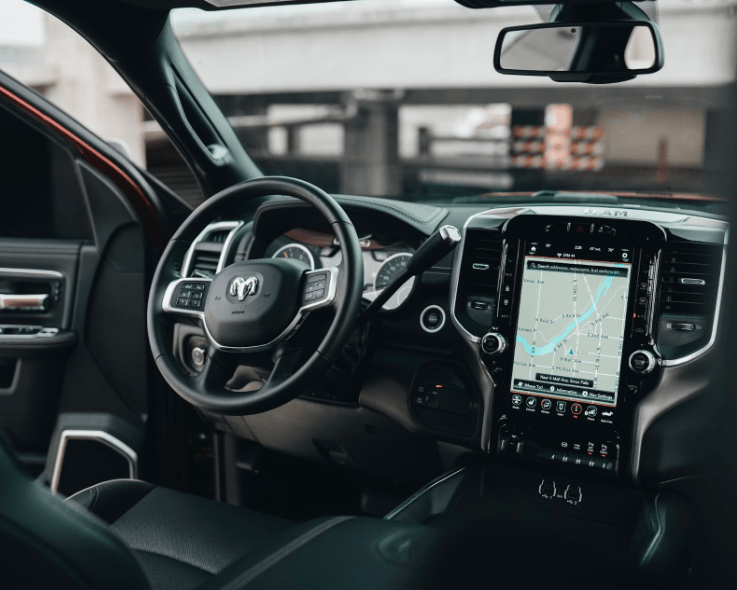If you’re in the market for a new car, it’s important to look beyond just features and specs. You also need to think about how the vehicle will fit into your lifestyle daily – because no matter how impressive those numbers seem, they won’t be worth much if you end up with a car that doesn’t meet your needs in terms of comfort, performance, shape, or size. Car selection is an incredibly personal decision; while there are some core things you should consider regardless of who’s behind the wheel, understanding each style of driving can help decide which type of vehicle might be best suited for every driver. By choosing the right ride– one that fits seamlessly into your life–you can save yourself time and frustration down the road.
Evaluate Your Needs
When it comes to buying a car, it’s important to evaluate your needs and determine what type of vehicle will best fit your lifestyle. Take a moment to consider what activities you do most often. Do you frequently take road trips with your family? Do you need to transport equipment for your job or hobbies? Or are you simply looking for a vehicle that can comfortably navigate city streets on your daily commute? By taking the time to identify your specific needs, you can make an informed decision and find a car that will not only meet but exceed your expectations.
Set a Budget – Determine how much you can realistically afford
Buying a car is an exciting and rewarding experience, but it can also be overwhelming if you don’t set a budget. One of the most important things you can do before heading to the dealership is to determine how much you can realistically afford for a car and stick to it. Keep in mind that owning a car involves more than just the monthly payments. You’ll also need to factor in gas, insurance, maintenance, and repairs. By setting a budget, you’ll avoid overspending and ensure that you can comfortably afford your new vehicle for the long term. So, take the time to crunch the numbers and make a budget that works for you. Trust us, your bank account will thank you in the long run.
Research and Test Drive
When it comes to purchasing a new car, taking the time to research and test-drive different models is essential. With so many options available, it can be overwhelming to choose the right one. Visiting a reputable Subaru dealer, for example, could provide you with the opportunity to test drive and thoroughly experience the models firsthand. By thoroughly researching models online and reading reviews, you can narrow down your choices and determine which ones suit your needs best. However, nothing compares to getting behind the wheel and experiencing the car for yourself. Take the time to test drive the models that interest you most. Not only will this give you a better sense of how they handle the road, but it will also allow you to see how comfortable and user-friendly the interior is. Remember, choosing a car should be a thoughtful process, so don’t rush into any decisions.
Look at Fuel Efficiency Ratings
Before purchasing a car, it’s important to look at its fuel efficiency ratings. After all, you don’t want to end up with a car that will break the bank every time you need to fill up the tank. By doing your research and choosing a car that’s efficient enough to meet your needs without busting your budget, you’ll be able to save money in the long run. Plus, opting for a car with better fuel efficiency is also better for the environment, making it a win-win situation. So, before you make your final decision, take a moment to consider the car’s fuel efficiency ratings and choose a vehicle that will work for both your wallet and the planet.
Compare Maintenance Costs
Maintenance costs may seem like a small detail when car shopping, but they can add up quickly over time. It’s important to do your research and compare the costs closely between different models you may be interested in. These costs can vary greatly depending on the car’s make, model, and year, so don’t assume that two similar-looking cars will have the same maintenance costs. By taking the time to compare these costs, you can make a more informed decision about which car to purchase, ultimately saving you money in the long run.
Check Safety Features
When it comes to buying a car, safety features are a top priority. After all, you want to make sure that you can get from point A to point B without risking your well-being and that of your passengers. But what safety features should you be looking for? Start by considering your personal needs and standards. Do you want automatic emergency braking? Blind spot monitoring? Lane departure warning? Once you know what matters most to you, make sure the car you’re interested in meets those standards. Checking safety features might seem tedious, but it’s a vital step in the car-buying process. After all, you can’t put a price tag on peace of mind.
Consider Resale Value
When it comes to purchasing a car, there are countless factors to consider. One that often gets overlooked is the vehicle’s resale value. While it may not seem like a big deal at the moment, the resale value of your car can play a significant role in your financial future. Investing in a car with a high resale value means that when it comes time to sell or trade-in your vehicle down the line, you will likely receive a higher return on your investment. So, even if a car with a lower resale value might seem like a steal at the time of purchase, it’s important to keep the bigger picture in mind and think long-term about the financial benefits of a higher resale value.
As you begin the search for your new car, all of these considerations must be taken into account if you want to find the perfect fit for your needs. Evaluate what your priorities are and focus on what’s best for you. Don’t be intimidated by the process or afraid to ask questions. Make sure you find help with every step of the car buying journey, from research to test drives, and safety and maintenance ratings, to finding financing and your ultimate selection.

